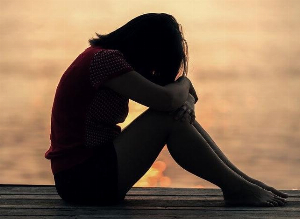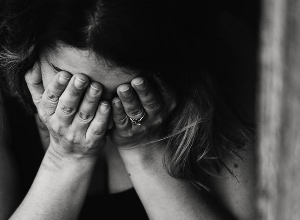8 tips to help fight depression without drugs
Published 18 Nov 2020 • Updated 20 Nov 2020 • By Gilda Teissier
Depression is not a feeling that you can just snap out of. It is a chronic condition in which most of the time medical treatment is needed. Nonetheless, in some forms of chronic depression, coping skills can be used either as the sole treatment or in addition to antidepressant medication and psychological therapy.
What are the symptoms of depression? What can I do to fight depression without medication?
We tell you all about it in our article!

Depression is the leading cause of disability worldwide, affecting about 121 million people. In the United Kingdom the case is the same, with 19.7% of the population over 16 years of age being affected.
Depression is not sadness or a temporary feeling due to laziness or grief. Depression is a debilitating mental condition with a high degree of heritability (40%) and incidence in women, and appears, on average, around early to mid 20s.
It is important to know this difference in order to properly address the condition and its treatments.
Symptoms of depression
According to the American Psychiatric Association (APA), depression symptoms can vary from moderate to severe and can include:
- Having a depressed mood or feeling sad
- Change in interests or motivation
- Irritable mood
- Changes in appetite (weight loss or gain)
- Sleep problems (too much or too little sleep)
- Significantly low energy
- Change in self-care
- Feelings of worthlessness or guilt
- Severe anxiety or panic attacks
- Difficulty thinking, concentrating or making decisions
- Thoughts of death or suicide
In order to be diagnosed with depression, some or all of these symptoms must be present for at least two weeks and show a clear change in your previous level of functioning. Depression feels heavy and constant, unlike sadness or grief which will vary in intensity and duration.
8 tips to fight depression without medication:
There are symptoms of depression that do not require prescription drugs and can be countered in other ways.
The following recommendations are meant to help as part of treatment, even for people who are taking antidepressant medication and/or going to therapy.
Remember, you should always discuss with your medical provider before going off your medicine, stopping therapy or even if you have a doubt about trying any of the tips listed below.
1. Healthier Habits: according to the APA, having good quality sleep on a regular basis, avoiding alcohol, cutting back on caffeine and eating healthily can help reduce the symptoms of depression and generate more stamina to keep you active and motivated throughout the day.
2. Exercise: In 2016, it was proven by experts that exercise is an effective treatment for depression. When you exercise, the brain releases hormones, such as dopamine and serotonin. They make you feel joy and satisfaction. Exercise actually produces new brain cells in the long run, making the brain more resistant to depression and other illnesses. One of the easiest ways to do this is by walking regularly. You don’t need to exhaust yourself daily - 30 minutes of moderate exercise 3 to 4 times per week is enough.
3. Set workable goals: Try to focus on what you love or need to do. This will help you feel a sense of achievement. Be sure to make them it realistic, measurable and manageable. If you don’t, then you'll risk feeling guilty and self-judgmental for not achieving them. Start with small things and build up from there.
4. Mindfulness: In other words, stay in the present and avoid self-judgement. When you engage in an activity, stay focused on what you are doing without letting yourself wander and judge yourself. This is not an easy task, but try to be aware of yourself and if you notice these thoughts, bring yourself gently back to the present. The goal here is to develop higher self-compassion that will eventually lead to higher self-confidence.
5. Rely on people who lift you up: Tend to your social life and schedule activities with people you like. Doing the things that you once enjoyed might not seem attractive, but getting out of the house and spending time with people that lift you can be helpful. You might even volunteer or join a support group if you feel that people you used to see do not understand you anymore. The idea is to not isolate yourself and find a balance between social and alone time.
6. Practice gratitude: Take time to think about your day and all you experienced, good and bad. Try not to focus on what went wrong and instead be grateful for the blessings you have. This will help you see your everyday life with a different scope.
7. Get more vitamin D: There is medical evidence that shows that vitamin d deficiency can play a role in depression symptoms. This nutrient comes from sun exposure and foods like egg yolks, tuna, salmon, dairy products, soy milk, orange juice, etc. If you are having trouble getting enough vitamin D through natural ways, ask your doctor to prescribe you a supplement.
8. Control your stress levels: A chemical that is often found in people with depression is cortisol. When one is stressed, they cortisol levels increase, hence the importance of learning how to manage stress. Some strategies that can help are time management, meditation, exercise, progressive muscle relaxation, deep breathing, etc.
Conclusion
If you suffer from depression, it is important, regardless of your current treatment, to try some of these tips every day, particularly when you aren't feeling up to it, they can help you build a healthy routine that will fight your depression.
Depression is a real condition and help is available. A proper diagnosis, therapeutic help, medication and coping skills, as the ones mentioned above, will help the vast majority of people to overcome this disease. If you are experiencing symptoms of depression, you should consider seeking professional help to address your mental health needs.
Was this article helpful to you?
Feel free to share your thoughts and questions in the comments below!
Take care!
Sources:
- What is depression. APA
- Major depression. National Institute of Mental Health
- Meditation Programs for Psychological Stress and Well-being. Jama Network
- Exercise for the treatment of depression and anxiety. SAGE Journals
- The Gut-Brain Axis: The Missing Link in Depression. Clinical Psychopharmacology and Neuroscience
- Vitamin D and Depression: Where is all the Sunshine? National Library of Medicine
- Depression Statistics. National Institute of Mental Health
- 5 treatments for depression without medication. Flow Neuroscience
- 7 ways to overcome depression without medication. Intermountain Healthcare

 Facebook
Facebook Twitter
Twitter




